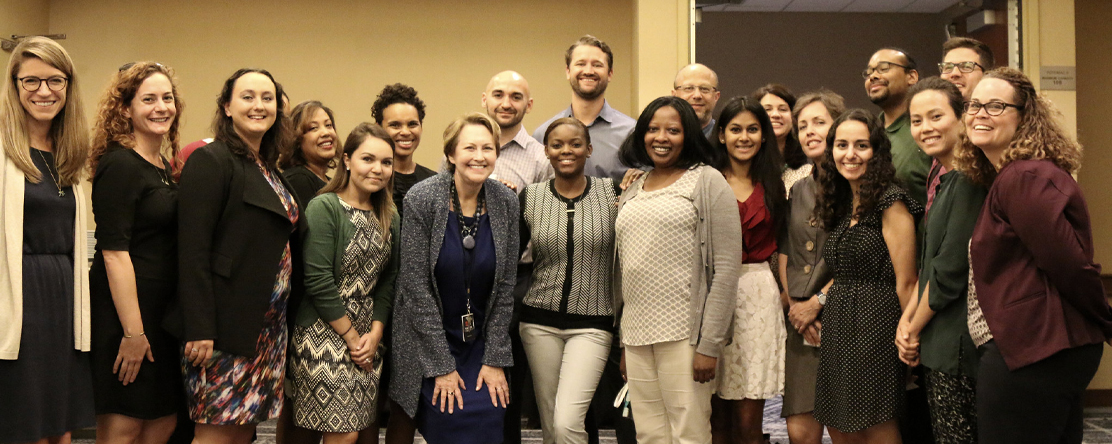
Press Release
USAID Awards Public Health Institute $94 Million to Develop Global Health Professionals and Build Long-Term Collaborative Partnerships
-
Focus Areas
Capacity Building & Leadership -
Programs
Sustaining Technical and Analytic Resources (STAR), USAID Global Health Fellows Program II

The five-year project improves the technical capacity of emerging global health leaders at all levels and creates sustainable institutional partnerships for open exchange
Oakland, CA and Washington, DC (May 1, 2018) – The Public Health Institute (PHI) is pleased to announce that the U.S. Agency for International Development (USAID) has awarded it a $94 million Cooperative Agreement, the Sustaining Technical and Analytical Resources (STAR) project. Through STAR, PHI will continue to identify and strengthen the capacity of diverse and international, talented global health professionals at all levels to make innovative, measurable contributions to the field. The STAR project also focuses on building long-term partnerships and systems between U.S. and low-and-middle-income country (LMIC) health-focused academic and professional institutions to facilitate learning and technical excellence within the broader global health community.
This award is recognition of the high value and rigor PHI has brought to recruitment, placement and career development of fellows and interns both in Washington, D.C. and abroad. PHI has supported USAID global health fellowship programs for nearly two decades, most recently including both iterations of the Global Health Fellows Program (GHFP I and II). Fellows and interns placed within and outside of USAID benefitted from coordinated efforts designed to contribute to USAID/Global Health bureau’s strategic health priorities and respond to fellows’ individual professional development. Fellows emerged as global citizens with the full spectrum of global health competencies.
“For over a decade, PHI has partnered with USAID to realize their vision: fostering health for all, around the world,” said Mary A. Pittman, DrPH, president and CEO of PHI. “Through this partnership, we’ve equipped hundreds of global health professionals to better address emerging epidemics like Ebola and stem chronic illnesses including HIV. Our incoming leaders face challenges that are greater than ever. I am confident they will be prepared to meet these challenges with even bolder, more creative and more effective solutions, thanks to the vision of USAID.”
The STAR project, which begins May 1, 2018 and will run for five years, supports USAID’s human capacity needs to respond to unforeseen global health challenges and provide technical leadership to improve systems that promote impactful collaboration across the global health community. The project fills a critical unmet need in cross-collaboration between U.S. and LMIC-based institutions to partner in ways that are respectful, empowered, effective and sustainable to support global health research, innovation and implementation.
“The STAR Project is an excellent opportunity for us to help prepare a diverse group of global health professionals from the US and from low-and-middle-income countries to support program implementation, research, and develop analytical skills that can create lasting, field-based and community-oriented solutions to global health problems. PHI will work closely with our partners to foster effective, empowered, and sustainable collaborations among government, non-government, and academic groups” said David Hausner, PhD, MPH, MIA, STAR project director.
To expand non-traditional global health career experiences and strengthen self-sustaining learning partnerships, PHI will work with partners Johns Hopkins University, University of California San Francisco, and the Consortium of Universities for Global Health. STAR will also expand upon work with USAID Locally Engaged Staff, including rotations, mentoring and exchanges, and leverage a technical advisory group to enhance the wrap around services offered to participants and enhance the capabilities of the project. In its communications and outreach efforts, PHI and its partners will tap their extensive networks of more than 200 global universities, professional associations and private-sector companies, and open the door for placements and learning collaborations to schools with new and mature global health programs as well as those offering broader technical talent useful to USAID.
More Updates


PHIL Collective: Tools, Training and Resources for Collaborative, Cross-Sector Efforts to Improve Health and Equity

New Analysis Shows 80% of Health Professionals Receive Questions About Environmental Impacts on Childhood Cancer Survivorship Rates. Only 25% Feel Comfortable Responding

Webinar Series: Infrastructure for Studying Treatment & Addiction Recovery Residences
Work With Us
You change the world. We do the rest. Explore fiscal sponsorship at PHI.
Support Us
Together, we can accelerate our response to public health’s most critical issues.
Find Employment
Begin your career at the Public Health Institute.
